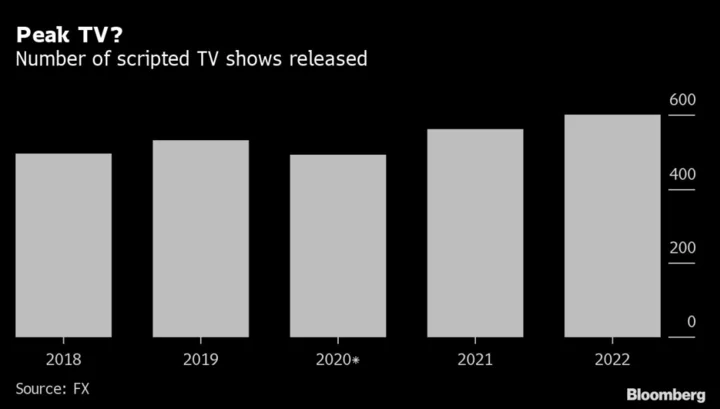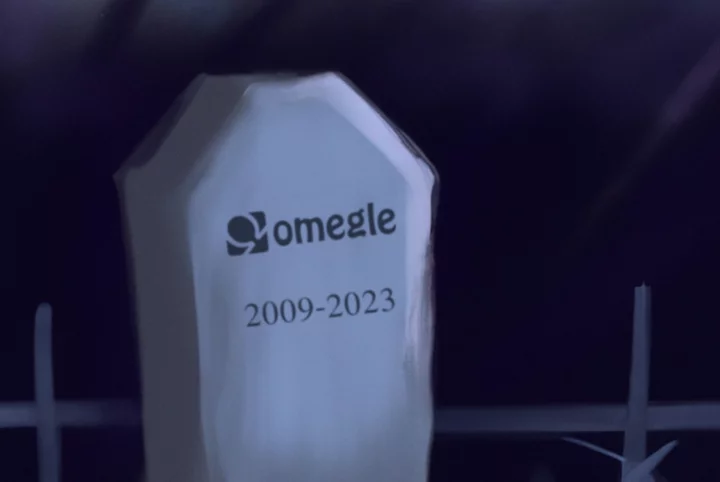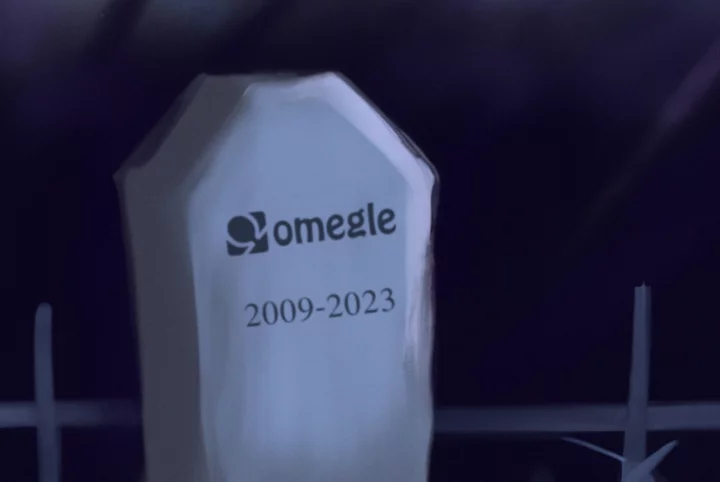
Apple agrees to $25 million settlement with US over hiring of immigrants
By Daniel Wiessner Apple Inc will pay $25 million to settle claims by the U.S. Department of Justice
1970-01-01 08:00

Generative AI still mostly experimental, say executives
By Katie Paul NEW YORK One year after the debut of ChatGPT created a global sensation, leaders of
1970-01-01 08:00

With Hollywood Strikes Over, TV Networks Race to Salvage Their Season
Now that the twin strikes by Hollywood writers and actors are over, TV networks are scrambling to salvage
1970-01-01 08:00

Ransomware attack on China's ICBC disrupts Treasury market trades
By Pete Schroeder (Reuters) -A ransomware attack on Industrial and Commercial Bank of China (ICBC) disrupted some trades in the
1970-01-01 08:00

Council investigating extent of cyber attack that affected website and systems
A cyber attack which disrupted access to a council website and its systems is being investigated with the relevant authorities to establish the full impact of the crime, officials have said. On Tuesday, Comhairle nan Eilean Siar (Western Isles Council) suffered a suspected ransomware attack. The website remains down and the local authority says it is currently uncertain of the extent of the damage caused by the attack. A ransomware attack is where hackers maliciously infiltrate an organisation’s website or systems, stealing sensitive data which they in turn use for monetary gain. While investigative work continues, the Comhairle’s priority in response to this incident remains to restore and secure services, ensuring their continued delivery to those in our communities who need them most Comhairle nan Eilean Siar spokesman The council says it is working alongside Police Scotland, the Scottish Government and the National Cyber Security Centre (NCSC) to establish the full impact of Tuesday’s incident. A council spokesperson said: “While investigative work continues, the Comhairle’s priority in response to this incident remains to restore and secure services, ensuring their continued delivery to those in our communities who need them most. “One key aspect of achieving this aim has been work on the processing of benefit and support payments. “While payments have been made to the public, restrictions to file access has affected other scheduled payments. “The impact to IT systems has also meant that invoices due to creditors cannot be paid at this time.” The spokesperson added: “The Comhairle appreciates the impact late payments can have and is working to resolve these issues as soon as possible. “The Comhairle will be in contact with the affected individuals to provide updates and support. “The Comhairle’s email system is now restored and work is ongoing to redirect numbers for key public services. “A temporary website is also in development which will allow members of the public to access key information.” Temporary phone numbers for social care and social work services can be found on Comhairle nan Eilean Siar’s page on X, formerly known as Twitter. The council says its human resources, occupational health and ardseileach care home can be contacted on their usual telephone numbers. A spokesperson for NCSC said: “We are working with Comhairle nan Eilean Siar to fully understand the impact of an incident.” Police Scotland and the Scottish Government were contacted for comment. Read More Setback for Ireland as EU legal adviser recommends revisit of Apple tax case Smartphones ‘may be able to detect how drunk a person is with 98% accuracy’ Ireland and Apple await major development in long-running EU tax dispute Guidance urges parents not to buy smartphones for primary school children William ‘blown away’ by futuristic technology from Singapore start-ups Return of original Fortnite map causes record traffic on Virgin Media O2 network
1970-01-01 08:00

Goldman Sachs developing dozen generative AI projects -exec
By Saeed Azhar and David French NEW YORK Goldman Sachs is working on a dozen projects which will
1970-01-01 08:00

WhatsApp could be getting ads
WhatsApp might be getting ads, according to its boss. The company has categorically ruled out that it would be put advertising in the inbox. But it might come elsewhere in the app, such as WhatsApp’s “Status” feature, which works like Instagram stories. WhatsApp has long resisted introducing ads to any part of its platform. That sets it apart from other Meta platforms, such as Instagram and Facebook, which heavily integrate advertising. WhatsApp has long been rumoured to be considering putting ads into its app, with rumours stretching back as long as five years ago. But it has largely resisted the temptation, in part because of worries about whether it would concern privacy-conscious users, whom WhatsApp has particularly targeted. In September, the Financial Times reported that it was looking at changing that. The company was evaluating whether it would work to show ads in the conversation list, the paper reported. Meta outright denied that it had been testing or working on that feature, or that it planned to. “We aren’t doing this,” WhatsApp head Will Cathcart said on Twitter. But in an interview with Brazilian newspaper Folha De S.Paulo, Mr Cathcart was asked whether the app would continue to be free and not show ads. And he said that some ads might come to other parts of the platform. The app will not put ads within the “messaging experience”, such as the inbox or chats themselves. Instead, it could come in other parts of the app, such as the Status feature as well as the new Channels tool that allows people to subscribe to messages from creators. The company could also introduce the option to charge people to subscribe to those channels, he said. That could also be advertised within those Channels. He did not give any firm information about when the feature would arrive, or any commitment that it would actually be introduced. Read More Political ads on Instagram and Facebook can be deepfakes, Meta says Instagram working to let people make AI ‘friends’ to talk to Big tech poses ‘existential threat’ to UK journalism, survey of editors finds
1970-01-01 08:00

Polestar the first EV maker to incorporate StoreDot's fast-charging batteries
By Steven Scheer JERUSALEM Israeli start-up StoreDot said on Thursday Polestar Automotive will be the first automaker to
1970-01-01 08:00

Law firm Allen & Overy hit by 'data incident'
LONDON (Reuters) -Allen & Overy has suffered a "data incident", the London-founded law firm said on Thursday, after social media
1970-01-01 08:00

China's SMIC sees lower Q4 gross margin, lifts annual capex forecast
(Reuters) -Semiconductor Manufacturing International Corp on Thursday lifted its annual capital expenditure forecast to around $7.5 billion and said it
1970-01-01 08:00

Omegle anonymous chat app shuts down after being used for ‘unspeakably heinous crimes’
Omegle, a popular website used to video chat with strangers, is shutting down after almost 15 years. The closure comes amid increasing criticism that the site endangered its users, with reports of child sexual abuse and other crime on the platform. Omegle allowed users to sign up and then be launched into a video chat with another stranger using the site. The two could chat for as long as they wished – until they ended that conversation and embarked on a new one. The app was launched in 2009, and became popular almost straight away. Its founder said that its popularity was a result of “meeting new people being a basic human need”. Quickly, however, it became known for explicit and other criminal content. Leif K-Brooks, the company’s founder, admitted that Omegle had been misused, “including to commit unspeakably heinous crimes”. The site attempted to introduce new features to stop that misuse, such as “monitored chats” that would allow moderators to try and stop criminals using the site. But they did not work, and the site continued to receive criticism for its lack of safety. Now Mr K-Brooks has said that the criticism has become too much, and Omegle will shut down. The intensity of the fight over use of the site had forced him to decide to shut it down, he said, and it will stop working straight away. “As much as I wish circumstances were different, the stress and expense of this fight – coupled with the existing stress and expense of operating Omegle, and fighting its misuse – are simply too much. Operating Omegle is no longer sustainable, financially nor psychologically. Frankly, I don’t want to have a heart attack in my 30s,” wrote Leif K-Brooks, who has run the website since founding it. Omegle saw a huge surge in popularity during the pandemic, as people not only flocked to the site but recorded their interactions and shared them on social media. But that popularity also brought more awareness of the problems on the site, and increased criticism of it. Mr K-Brooks acknowledged that criticism. But he also suggested that at least some of it was in bad faith, and that it was intended to force the site to shut down. “In recent years, it seems like the whole world has become more ornery. Maybe that has something to do with the pandemic, or with political disagreements. Whatever the reason, people have become faster to attack, and slower to recognize each other’s shared humanity. One aspect of this has been a constant barrage of attacks on communication services, Omegle included, based on the behavior of a malicious subset of users,” he wrote. He said that the site had been shut down on the basis of “fear”. “If something as simple as meeting random new people is forbidden, what’s next?”, he wrote, comparing the end of Omegle to “shutting down Central Park because crime occurs there – or perhaps more provocatively, destroying the universe because it contains evil”. The decision to shut down Omegle comes amid increasing concern about regulation of the internet and how best to protect its users. It comes just days after the introduction of the UK’s Online Safety Act, for instance, which aims to hold platforms to account for crimes on their platform, including online grooming. Read More Omegle anonymous chat app shuts down after 14 years Setback for Ireland as EU legal adviser recommends revisit of Apple tax case New AI Pin clips ChatGPT to your clothes Setback for Ireland as EU legal adviser recommends revisit of Apple tax case New AI Pin clips ChatGPT to your clothes Google issues three-week warning to Gmail account holders
1970-01-01 08:00

Omegle anonymous chat app shuts down after 14 years
Omegle, a popular website used to video chat with strangers, is shutting down after almost 15 years. The closure comes amid increasing criticism that the site endangered its users, with reports of child sexual abuse and other crime on the platform. Omegle allowed users to sign up and then be launched into a video chat with another stranger using the site. The two could chat for as long as they wished – until they ended that conversation and embarked on a new one. The app was launched in 2009, and became popular almost straight away. Its founder said that its popularity was a result of “meeting new people being a basic human need”. Quickly, however, it became known for explicit and other criminal content. Leif K-Brooks, the company’s founder, admitted that Omegle had been misused, “including to commit unspeakably heinous crimes”. The site attempted to introduce new features to stop that misuse, such as “monitored chats” that would allow moderators to try and stop criminals using the site. But they did not work, and the site continued to receive criticism for its lack of safety. Now Mr K-Brooks has said that the criticism has become too much, and Omegle will shut down. The intensity of the fight over use of the site had forced him to decide to shut it down, he said, and it will stop working straight away. “As much as I wish circumstances were different, the stress and expense of this fight – coupled with the existing stress and expense of operating Omegle, and fighting its misuse – are simply too much. Operating Omegle is no longer sustainable, financially nor psychologically. Frankly, I don’t want to have a heart attack in my 30s,” wrote Leif K-Brooks, who has run the website since founding it. Omegle saw a huge surge in popularity during the pandemic, as people not only flocked to the site but recorded their interactions and shared them on social media. But that popularity also brought more awareness of the problems on the site, and increased criticism of it. Mr K-Brooks acknowledged that criticism. But he also suggested that at least some of it was in bad faith, and that it was intended to force the site to shut down. “In recent years, it seems like the whole world has become more ornery. Maybe that has something to do with the pandemic, or with political disagreements. Whatever the reason, people have become faster to attack, and slower to recognize each other’s shared humanity. One aspect of this has been a constant barrage of attacks on communication services, Omegle included, based on the behavior of a malicious subset of users,” he wrote. He said that the site had been shut down on the basis of “fear”. “If something as simple as meeting random new people is forbidden, what’s next?”, he wrote, comparing the end of Omegle to “shutting down Central Park because crime occurs there – or perhaps more provocatively, destroying the universe because it contains evil”. The decision to shut down Omegle comes amid increasing concern about regulation of the internet and how best to protect its users. It comes just days after the introduction of the UK’s Online Safety Act, for instance, which aims to hold platforms to account for crimes on their platform, including online grooming.
1970-01-01 08:00
